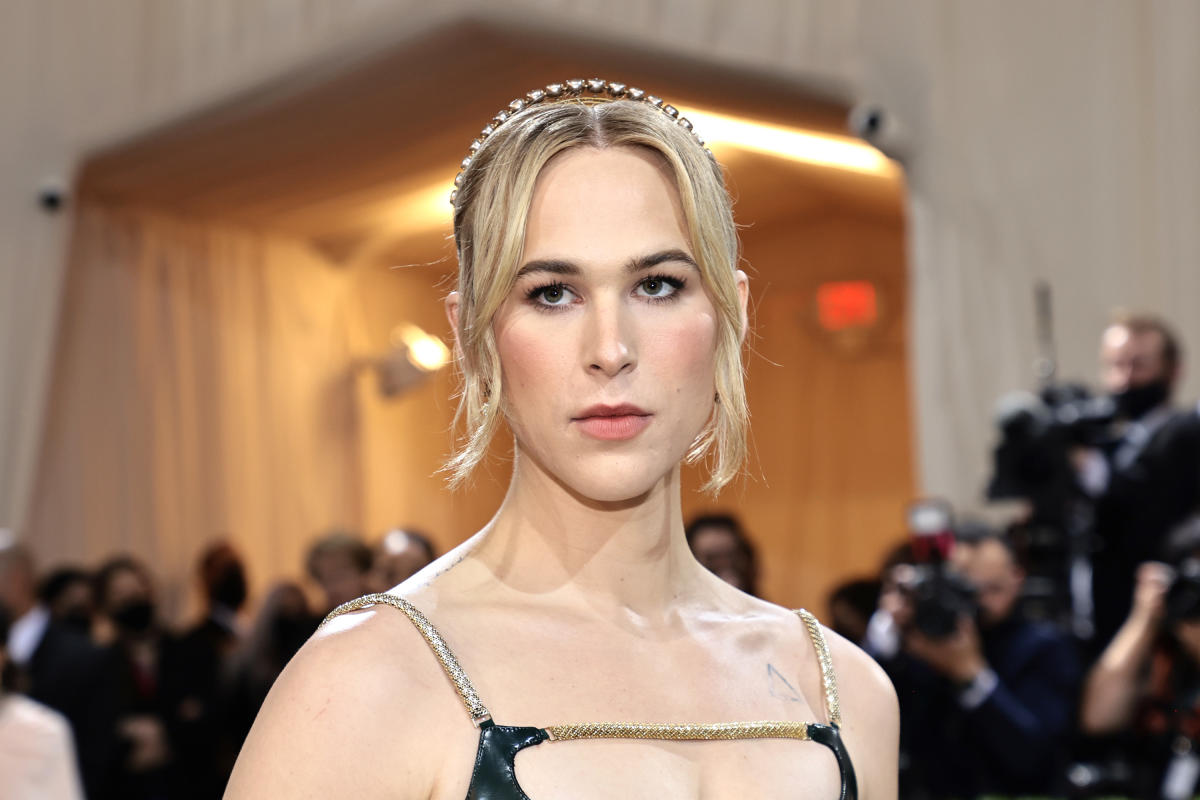Tommy Dorfman has had a lot to think about since coming out as trans last year.
The 13 Reasons Why alum, 30, opened up on the latest episode of the podcast Broad Ideas with Rachel Bilson, during which she spoke about her early years in Hollywood, and why, in hindsight, getting married to her ex-husband was only to feel “safe” in the world and how living as her true self has enriched her life.
“In those early years of working, I was just trying to understand [myself],” Dorfman said, noting that 13 Reasons Why was her first real professional job. The series became one of Netflix’s highly-rated originals.
“I think if I hadn’t booked that job I would have transitioned a lot sooner,” she continued. “I think because of my work being so tied to my body and face and identify, or whatever [a character] identified as, it delayed some of my growth and some of my maturation in my 20s. I made decisions that were just not aligned with how I really was or what I wanted — but out of fear.”
Dorfman, who married her longtime boyfriend Peter Zurkuhlen in 2016 before filing for divorce in February this year, added that, in hindsight, she “probably got married” because at the time it felt like the “safe” thing to do.
“It felt like a safe secure space that I can carve out for myself in a world that was ever changing,” she said of her marriage. “I was just dealing with stuff that I didn’t know about yet.”
The star, who’s lived a sober lifestyle since she was 21 years old, explained that, growing up, she always felt out of place. She also compared the experience of gender dysphoria to that of alcoholism or addiction, meaning that in both situations, life can feel as if “you’re living in a fog” with no sense of authentic direction, despite real efforts to course-correct.
“It’s very similar to my first year of sobriety,” she said of her first year living as a transgender woman. “It feels very odd and confusing. Every day feels different.”
“I think if you’re living with [gender] dysphoria it’s not so dissimilar to living actively in alcoholism or addiction,” she explained. “You’re living in a fog. You’re living underwater, basically.”
“For me, I always felt like other people had a guidebook for life that I just did not [have],” she continued. “I would always be like, ‘How did you know how to brush your teeth twice a day?’ That’s crazy. Or, ‘You know how to make a bed?’ Or these simple basic human things that were just not available to me. Or, like, emotions. I was like, ‘You feel emotions outside of acting? That’s weird.’ Acting was the only way I could feel things until I started transitioning. Then it was like, boom!”
“I often described my first year of transition as my first year of sobriety,” she says of her personal evolution. “It was like doing my birthday for the first time, doing Christmas for the first time, going to a party for the first time, going on vacation for the first time. All those milestones in early sobriety, I felt like I had to do all those things again — but as a woman. And every day it still feels that way because as my body takes a new shape and new form, organically, just from hormones and life, and then confronted with new challenges.”
Growing up, Dorfman says she always felt like she “wasn’t in the right place or the right time,” but these days, she’s grown to understand the meaning of her own life.
“I always felt like I wasn’t meant for the world I was living in,” she said. “You know how people are like, ‘I should have been born in the ’80s’ or something? I always had that feeling. And then when I started transitioning I was like, oh no no no, I am totally meant for this body and meant for this time and meant for this world. I just was wearing a sweater that was three sizes too small — for 28 years.”
The actor is not new to speaking openly about how her life has changed drastically since transitioning.
Last year, just one month after publicly coming out, she spoke about the personal discoveries she had after starting the medical process in an interview for InStyle.
“Two weeks into having estrogen in my body, I was like, ‘Oh.’ It felt like I sank into the earth and was grounded. I can sleep now. I wake up moderately happy,” she told the magazine. “I felt it hit, and I was like, ‘Let’s ride.’ And as the testosterone leaves my body, I feel so much better. I’m more energized. I feel how I think I was always supposed to feel.”
“I spent 28 years of my life suicidal and depressed and recovering from alcoholism and drug addiction,” she added. “I don’t think I’ve ever been genuinely happy until this past year. I look at the internet chronicle of photos of me since I started working, and I can see how f**king unhappy I was in every photo. It’s wild.”
Still, she explained it can be daunting to watch your body change if you aren’t prepared for it.
“I also had never seen a body in transition before, and I think that’s a scary thing as a trans person,” she said. “It’s kind of alien, and it’s incredibly autonomous. It’s puberty as an adult if you do it at my age — it’s a second puberty, and I think you’re supposed to go through puberty at an age when you don’t remember it because it hurts. It’s body-aching and emotionally wonky.”
Wellness, parenting, body image and more: Get to know the who behind the hoo with Yahoo Life’s newsletter. Sign up here.




